Amanda Heal was devastated when she and guide dog Sadie were refused a ride in a taxi last year.
"He saw Sadie and just backed down the driveway as fast as he could and drove away," Ms Heal said.
The driver was identified and fined when Ms Heal reported it to Domestic Animal Services (DAS).
Access refusal
The experience is not uncommon for Guide Dog handlers - people with low vision who have a guide dog - Guide Dog NSW/ACT's Tamara Searant said.
In the last two years, 88 per cent of Australian handlers had been refused access because of their dog.
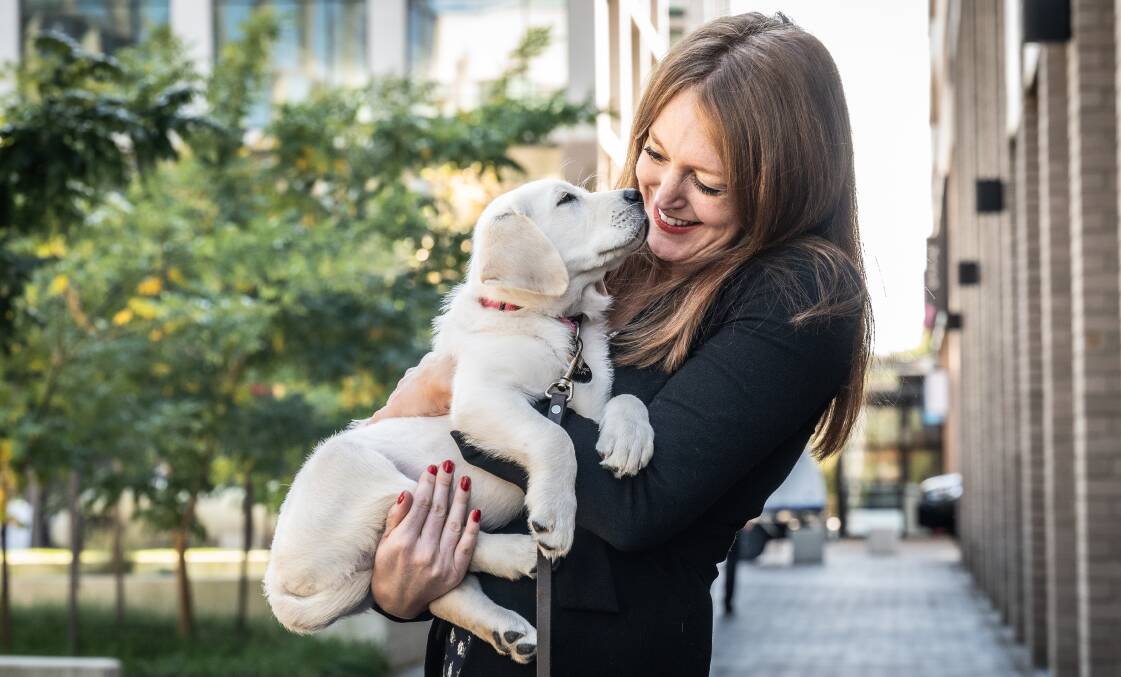
"There are also refusals that take place because of security guards or going to cafes [and] restaurants, but at the moment we're really focusing on taxis and rideshare. Because if you can't go to the destination, then that's your first barrier," Ms Searant said.
Guide NSW/ACT opened a new office in Dickson on Tuesday morning.
Having assistance dog April by her side has opened up Liliana Russell's life.
"Unfortunately, I have also had experiences of being refused access and participation in the normal things that I want to do," she said.
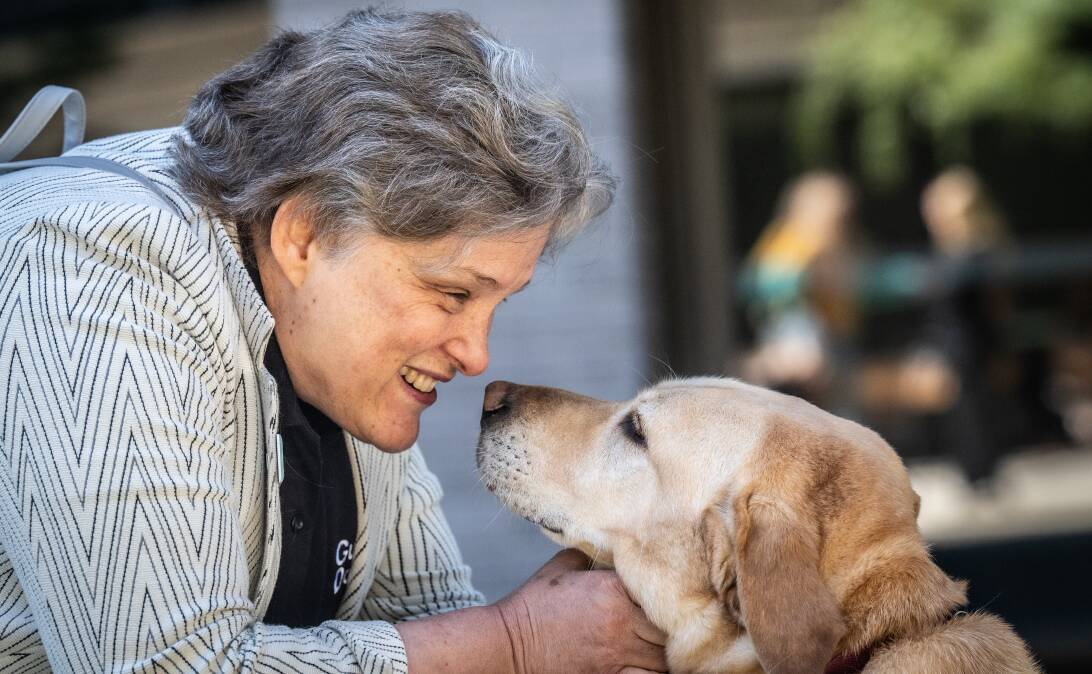
"I've experienced all types of access refusals from taxis, from rideshares, from retail, to restaurants
"[But] you don't know what you don't know sometimes, so it's all about education."
Rideshares and taxis
Taxis and rideshares are important for people with low vision, Ms Searant said.
"You can't just get in the car and drive," she said.
"You might not have a bus stop [or train station] that's within easy walking distance."
Guide Dogs is working with taxi and rideshare companies to prevent service refusal, Ms Searant said.
"One thing that will be really helpful in the future will be mandatory reporting of incidences, so that everyone's aware of the rates," she said.
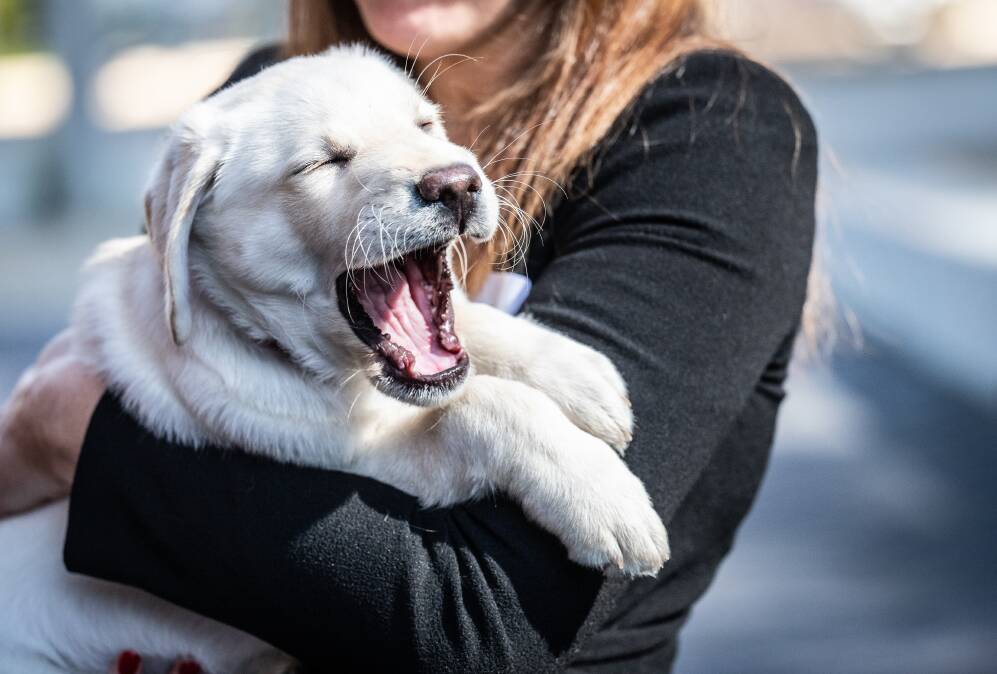
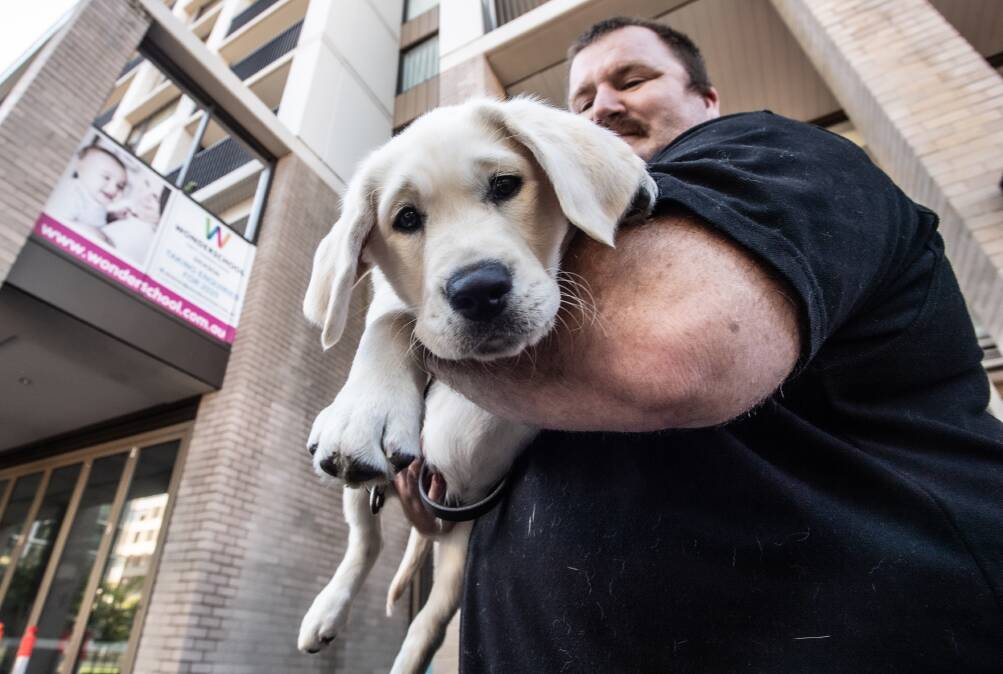
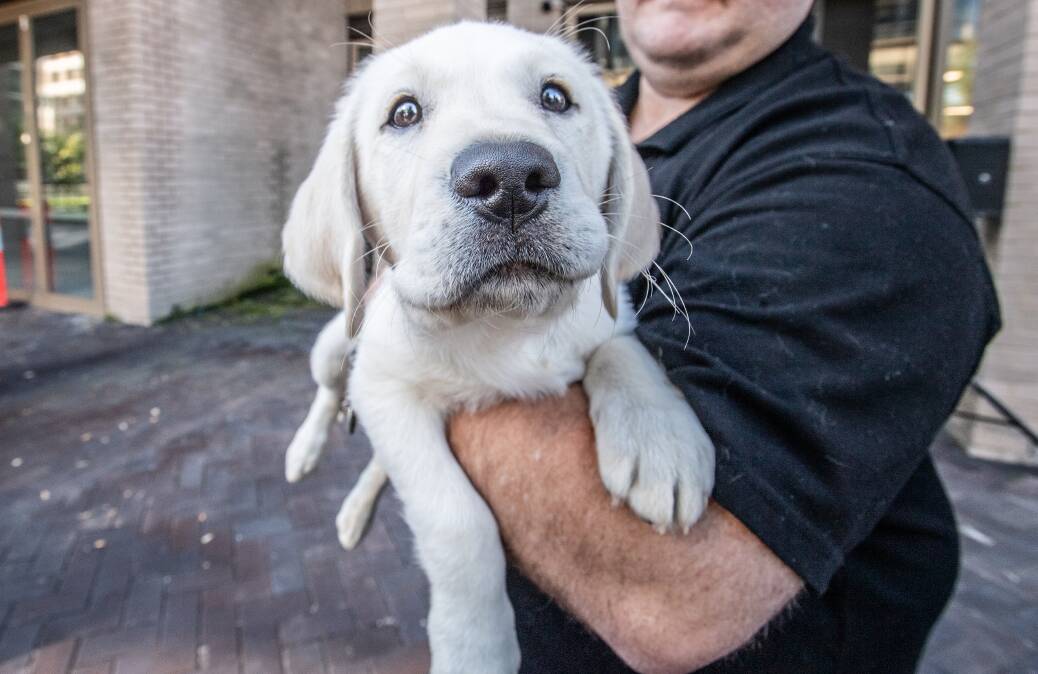
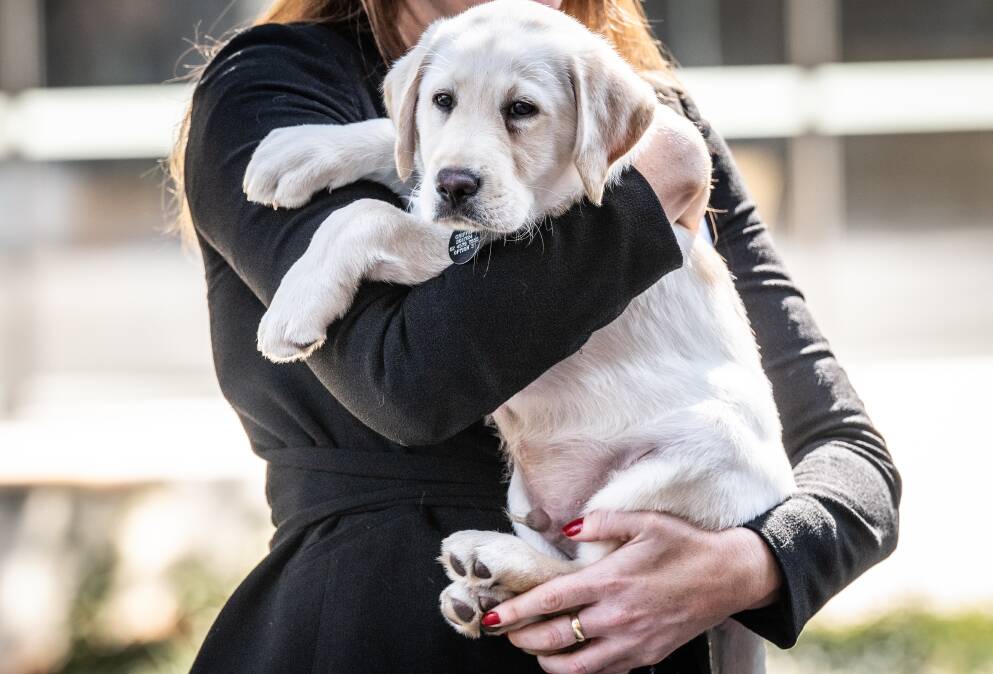
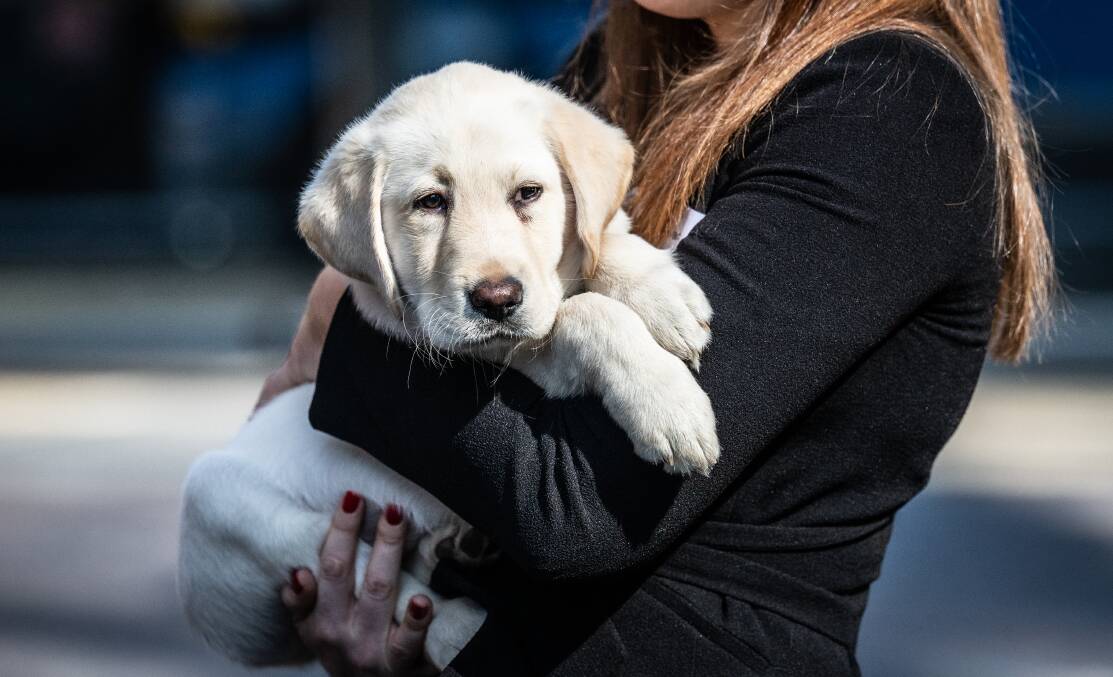
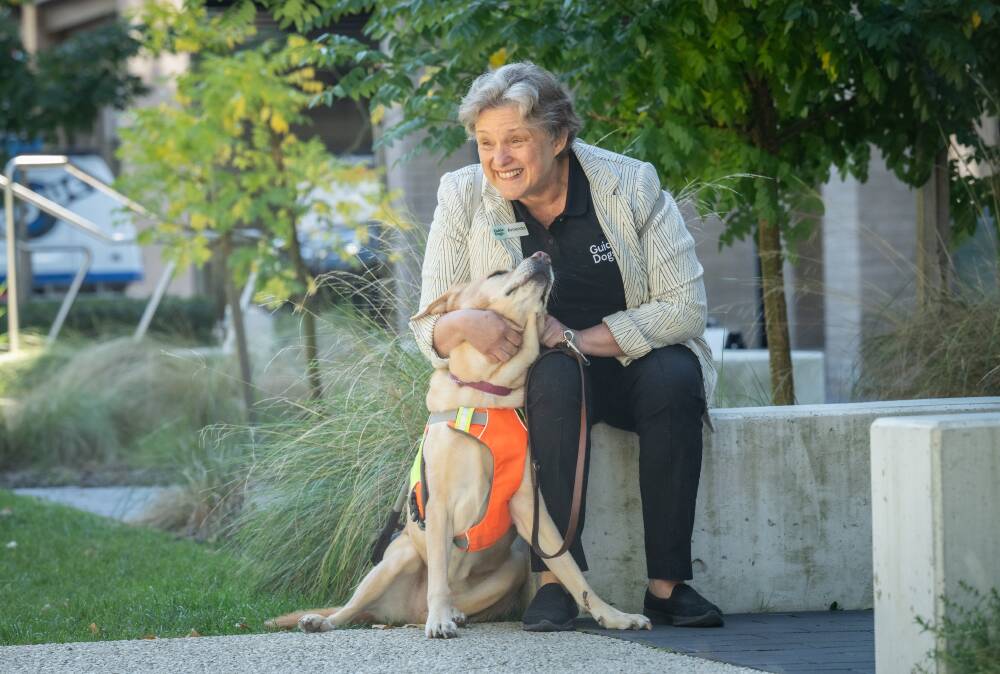
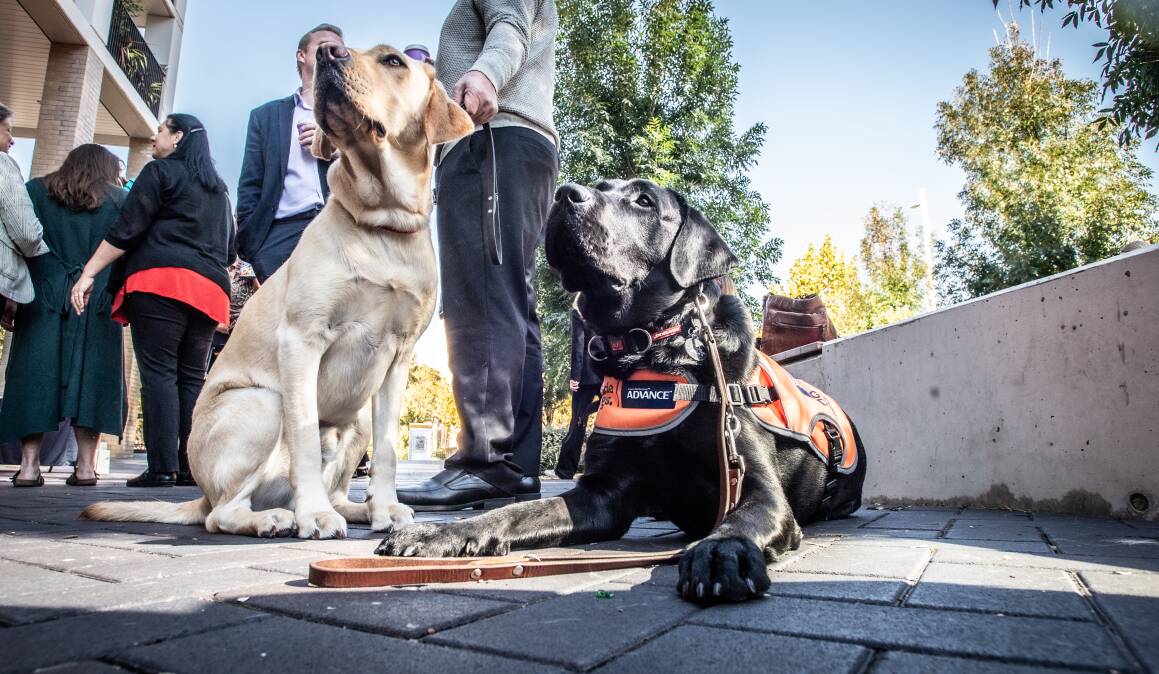
An Uber driver can be permanently banned for refusing an assistance animal, the company says.
People can complain through their Uber app.
In 2021, Uber launched a program designed to offer more support to clients with service animals.
It includes an exclusive phone assistance line, notifications sent to drivers to remind them of their legal obligations and automatic reviewing of driver cancelations.
Public transport
As well as rideshares or taxis, many people with low vision or blindness rely on buses and the light rail to get around Canberra.
Ms Heal has helped train ACTION bus drivers on how to help people with guide dogs.
"Most of Canberra's bus drivers are wonderful," she said.
"They do everything that they can do to to make my life easier."
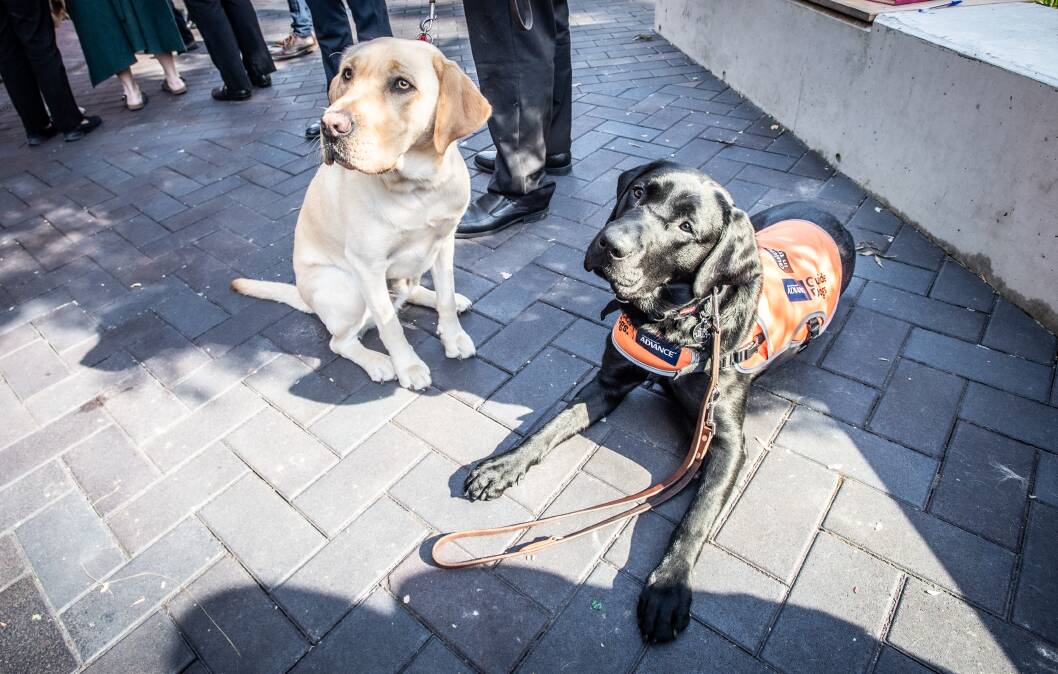
She has also caught the light rail.
"The platforms are really accessible with Braille and large print signage and tactile ground service indicators on the edges of the platform and nice accessible vehicles," Ms Heal said.
"The announcements on the vehicles are great. I will be travelling more on the light rail in the future, I'm sure."
Improvements
It is illegal to refuse an assistance dog and their handler access to a public place or transport in the ACT, Chief Minister Andrew Barr said.
"It's vital all people who are using an assistance animal can access all public spaces," he said.
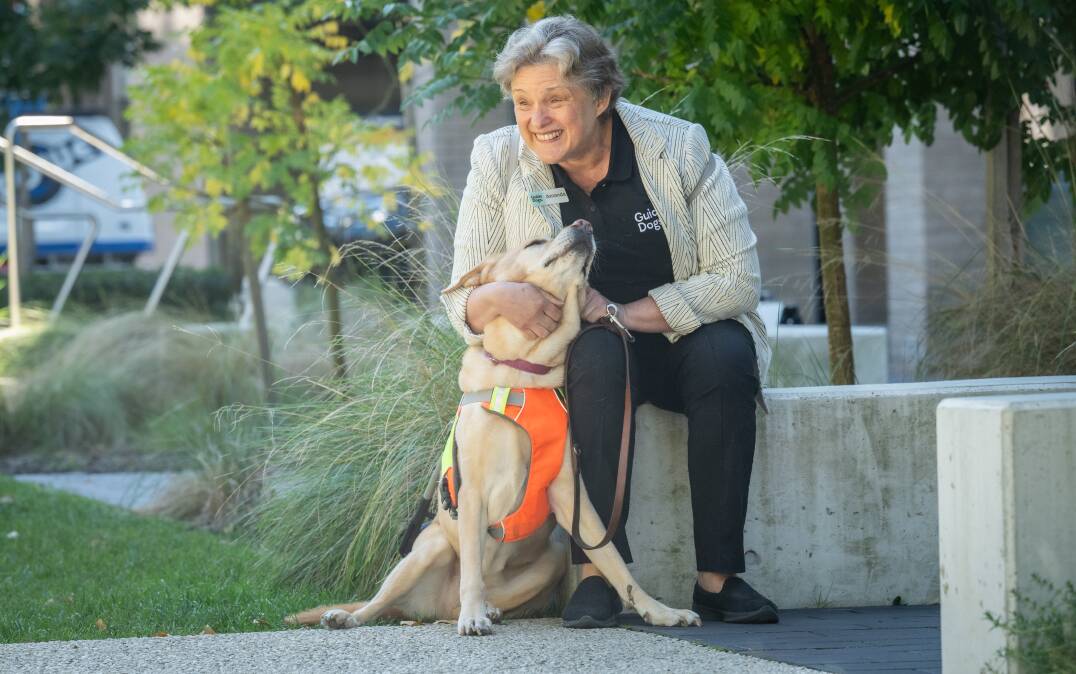
"This includes but is not limited to cafes, restaurants, public transport, taxis, rideshare vehicles, theatres, shopping centres, entertainment venues, supermarkets, hospitals, hotels [and more]."
The ACT government is working to improve complaint mechanisms for people who have been refused access, Mr Barr said.
"It's not often understood by everyone in our community that it is illegal to deny someone with an assistance animal access to a public place. Unfortunately, this still happens." he said.







